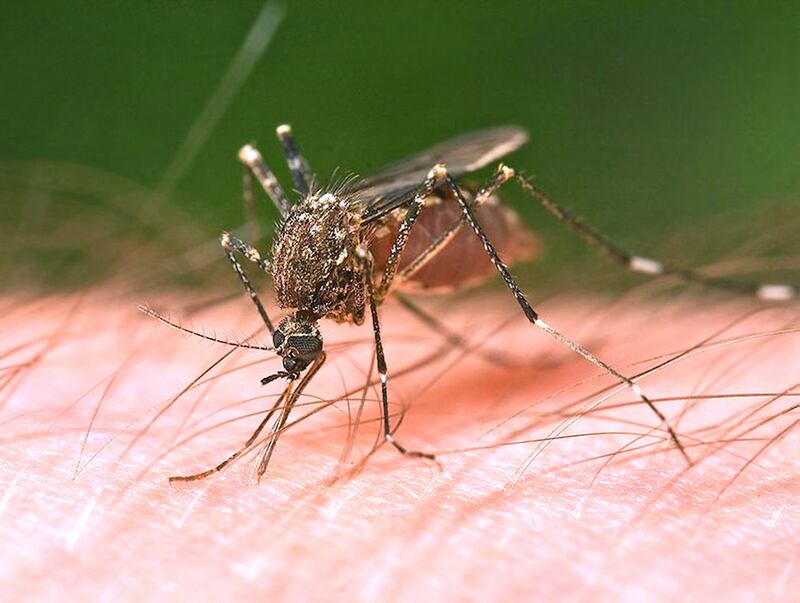DeKALB – Mosquitoes collected in traps in the city of DeKalb have tested positive for West Nile virus, health officials announced Wednesday.
No human cases have been reported so far in DeKalb County this year, according to the DeKalb County Health Department.
West Nile virus is transmitted through the bite of an infected mosquito. Mosquitoes become infected after feeding on an infected bird. It’s important to remember most mosquitoes or birds do not carry West Nile virus, according to the health department.
“The most effective way to prevent you or your family from being infected is to reduce the chances of being bitten by mosquitoes,” DeKalb County Director of Health Protection Greg Maurice said in a news release. “This includes eliminating standing water from around your house and using mosquito repellent when outside.”
Dead birds won’t be tested for the virus this year due to ongoing concerns related to avian flu, officials said. If you have a dead bird in your yard, use a shovel or wear disposable gloves to pick it up. If you don’t have gloves, turn a plastic bag inside out and use it to pick up the carcass. Double-bag the carcass, and throw it away in your regular trash.
Most people with the virus exhibit no clinical symptoms of illness, but some may become ill three to 14 days after the bite of an infected mosquito, health officials said.
Illness from West Nile virus is usually mild and includes fever, headache and body aches, but serious illness, such as encephalitis and meningitis, has been known to develop. Those older than 50 have the highest risk of severe disease.
Tips to stay healthy and safe
- Avoid being outdoors when mosquitoes are most active, especially between dusk and dawn.
- When outdoors, wear shoes and socks, long pants and a long-sleeved shirt, and apply insect repellent that includes DEET, picaridin or oil of lemon eucalyptus according to label instructions. Consult a physician before using repellents on infants.
- Make sure doors and windows have tight-fitting screens. Repair or replace screens that have tears or other openings. Try to keep doors and windows shut, especially at night.
- Change water in birdbaths weekly. Properly maintain wading pools and stock ornamental ponds with fish. Turn over any buckets, garbage cans or other containers that collect water.
For more information, visit the DeKalb County Health Department website at health.dekalbcounty.org.

:quality(70)/author-service-images-prod-us-east-1.publishing.aws.arc.pub/shawmedia/afeba7c5-6912-4fdf-967f-edcf9aadb18e.jpg)